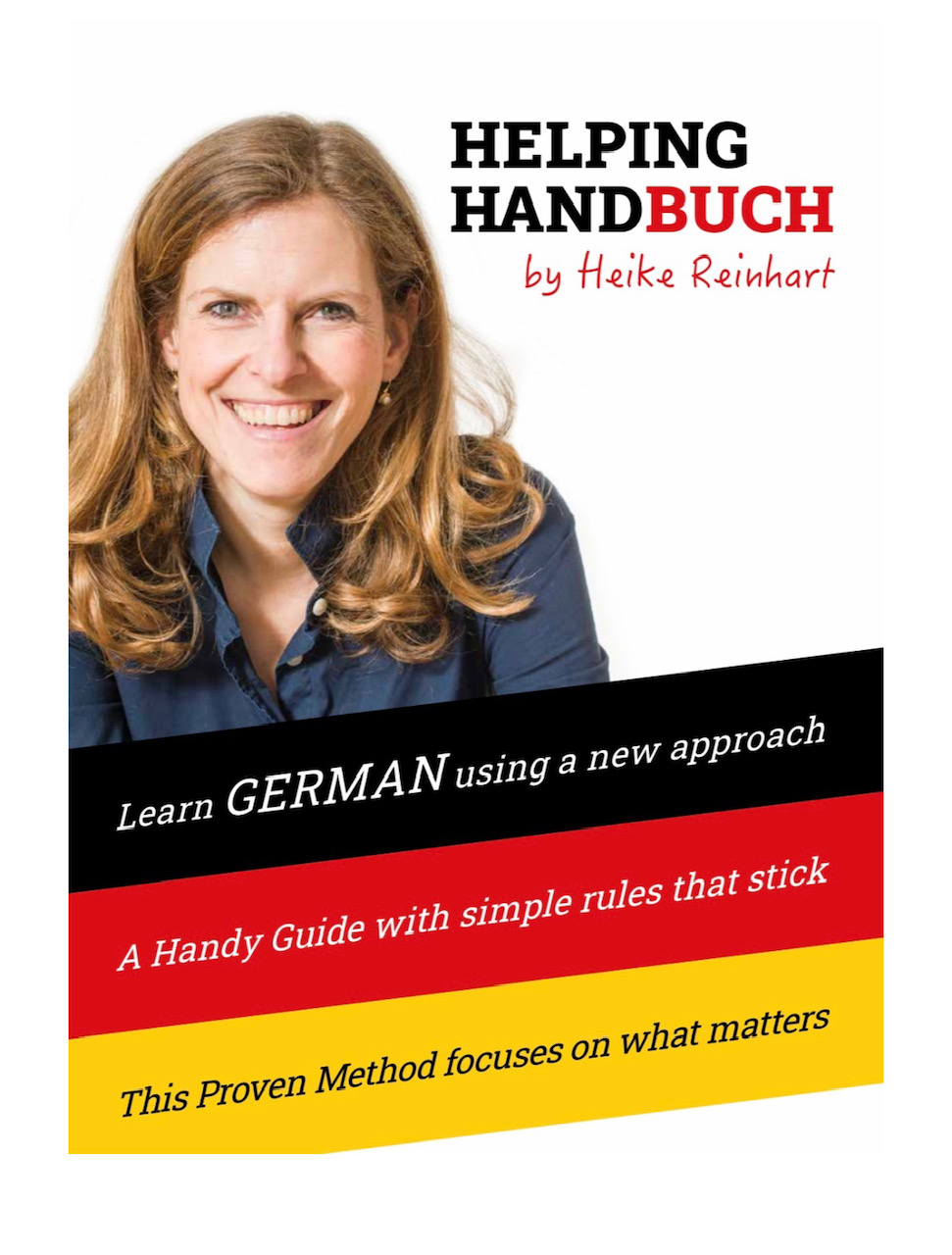Author Archives: Angie Weinberger
The German Queen launches her Helping Handbuch

The German Queen launches her Helping Handbuch “And the hands? Using hands to teach a language came instinctively to me. Across all cultures and languages, we naturally use our hands to communicate with each other, wordlessly expressing “hello,” “great,” and numbers. I build on this natural communication tool by using the hand as a visual cue for learning German and making it a hands-on experience.” Heike Reinhart Heike Reinhart truly believes that German does not have to be a complex language to learn. German by birth, traveler by passion, and a student of several languages herself, Heike knows that language proficiency is the key for expats to create exciting new experiences, deeper cultural connections, and better workplace integration. She is committed […]
Successful Immigration to Germany via the New Blue Card

The New Blue Card Your Ticket to a Successful Immigration to Germany A Guest Post By Sandipta Jadhav, Immigration Lawyer, and Global Mobility Specialist New Blue Card statistics and success stories Since its introduction, the Blue Card program has been a resounding success, attracting highly skilled workers from around the world to Germany. With high numbers of Indians, Chinese, and Turkish nationals also have a deep interest in relocating to Germany. The program has contributed significantly to the German economy, with BlueCard holders bringing their expertise and innovation to various industries. As you are aware, nationalities like Indian, Chinese, and Korean are always looking for overseas options in the dream of an advanced lifestyle. I believe this is the best […]
Key Factors to Consider When Defining Your Ideal Client as an Expat Coach

Key Factors to Consider When Defining Your Ideal Client as an Expat Coach Are you struggling to attract the right clients to your business? Do you find yourself working with clients who don’t align with your values or goals? If so, it’s time to define your ideal client. Understanding who your ideal client is and what they want is essential for creating effective marketing strategies and building a successful business. In this article, we will explore the five key factors you need to consider when defining your ideal client. From demographics and psychographics to pain points and goals, we will dive deep into what makes your ideal client tick. By the end of this article, you will have a clear […]
Diversity At Work – Do You Know Your Recipe?

A Guest Post by Daniel Toth I’ve never cooked a goulash in my life, I guess for many reasons. You need many people to eat it, or you will eat it alone for a week. Then, not all the ingredients are available in Switzerland, or at least not have the exact same taste. But most likely, I tend to avoid everything Hungarian in my life, which could remind me of my home, where I grew up… it is not the place at all that it used to be, but populism and its effect on society is not the topic of today. Yet when I was asked if I could share my expat experience, somehow, I got stuck to the idea, […]
The Global Rockstar Album – 21 Verses to Find Your Tact as an Inclusive Leader

The Global Rockstar Album – 21 Verses to Find Your Tact as an Inclusive Leader With “The Global Rockstar Album – 21 Verses to Find Your Tact as an Inclusive Leader” launching around the corner, I thought I would talk briefly about my journey of completing this book. Every book project is a massive team effort. I realized in June that it would be easy just to quit the project, so I forced myself a little. I used what I call the “people approach to managing projects.” Often when I am confronted with my inner corrupters and I find a way to get over myself I feel like sharing this with you. Here are my learnings from this fourth book […]

